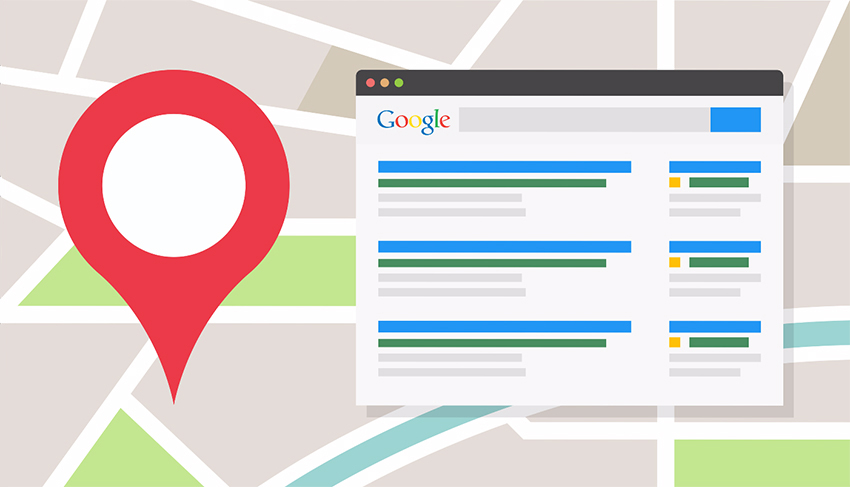It used to be so easy to snap high rankings. Stuff your page with your target keyword, buy a few link-building services and boom, your website got to the number one spot. Sadly, this doesn't work anymore.
SEO
So you want to rank your real estate website? The key is hyper-local SEO.
It used to be easy to get to the top: stuff your page with your target keyword, buy a few link-building services and boom! Your website is in the number one spot. Sadly, this doesn’t work anymore.
Not only has Google changed their algorithms to stop people from “gaming” the system, but real estate keywords are also more competitive than ever to optimize your website for.
Ever since massive real estate databases such as Trulia and Zillow came into the picture, they’ve held the top spots on Google for all of the broad real estate search terms. The good news is that knowing this allows us to make a better locally-focused strategy.
Hyper-Local SEO For Real Estate Websites
Let me explain what Trulia and Zillow do well: broad searches.
If you’re trying to rank for broad keywords like “real estate” or “homes for sale”, you’re going to be disappointed with the results. Zillow acquired Trulia for 2.5 Billion (with a B) in 2015. This means that no amount of money thrown at your website is going to make a dent. However, Trulia and Zillow only do the broad strokes well.
We’ll go into more details on keywords later, but first, we’ll look at how to set up your real estate website to leverage hyper-local search criteria and dominate.
Hyper-Local Neighborhood Pages
A simple strategy we use to help our clients optimize their real estate websites for their local area is by creating dedicated neighborhood pages. Each page goes into rich detail about a specific hyperlocal neighborhood. The most SEO – friendly way we have found to do this is by creating top-level pages and second-level pages.
Here are a few examples:
- City Page >> Neighbourhood Pages
- City/Neighbourhood Page >> Condo Buildings
- City/Neighbourhood Page >> Property Types (Ex: Waterfront homes)
When creating the neighborhood pages, you want to get as granular as possible. Break it down to 20, 30 neighborhoods if you can. The more precise your page is, the more likely it is to pop up as a top result for a client specifically focused on that area. This is GREAT for hyper-local SEO.
You can also choose to create the second-level pages based on property types or buildings. Our clients have made pages here for everything from new construction condos, to waterfront and golf homes. It really is up to you and the market you want to reach.
Content on Your Area Pages
Your Area Pages are where you can go into deep detail and really provide value. Describe the area, history, property developments over time and how the market has changed for each neighborhood.
Awesome, rich content is how you build trust and establish yourself as the definitive local expert (You can also do this with guest contributing). Your content on these pages (as well as blogs) can act as a magnet to attract leads… and as a mechanism to filter out those who aren’t in your target demographic.
NAP
Don’t underestimate the basics. The NAP (Name, Address, and Phone number) are crucial in order to properly index your site. Look closely at the name of your business. Make sure that the business name, address, and phone number on your main web page and used throughout your site are the same used for your local listings and citations, such as Google My Business. Your contact information on your site and your broker’s website should always be clear, full, and consistent.
Hyper-Local Blog Posts
There’s a limited amount of content you can add to your area pages. Create a section on your area pages that links to your blogs.
Blogs can work wonders to increase your SEO performance. Well written blogs position you as the potential answer to users’ questions and will keep them hooked on your website. There are a variety of on-page tactics you can use to make your blogs stand out in search engines and draw in visitors.
Even if you’re short on time, there’s no reason why you can’t have great blogging content. Our Blog Assist integration allows AgentFire clients to receive a customizable real estate blog written by a professional copywriter, every week. When your blog draft is uploaded, you can customize it further as desired. This makes it easy for you to consistently provide relevant content that brings viewers to your website.
If you don’t have the Blog Assist integration, check out these 72 examples for real estate blog topics. Pay special attention to topics you’re the expert on in your area or niche.
The following sections will cover a variety of topics that you can easily integrate into your next blog.
Finding Hyper-Local Keywords
Let’s get to the juicy part: keywords. The best place for real estate agents to shine is in the long-tail, hyper-local searches. This will allow you to start ranking your website high in Google very quickly. Read this if you’re not familiar with long-tail keywords.
Here’s the issue with short keywords. People searching broad terms like “USA real estate”, likely don’t have a strong intent to buy. They could be searching for market news, a definition, a breaking news story, or more. These users are just looking for more information and may be stalled with financial or legal concerns that hold them back from taking the leap.
Long tail keywords such as “Single family homes in the north Burbank area”, show that these users know exactly what they’re looking for and are likely on the hunt for a specific type of home. Around 70% of Google searches are long tail keywords, and that’s where the gold is.
Essentially, we want to focus on any specific combination of key phrases that indicate buyer/ seller desire in your area. We can then take these keywords and sprinkle them within your website content (especially area pages and blogs).
The long-tail keywords we’re looking for should look something like this:
- Homes for sale in [neighbourhood]
- 3 bedroom house in [city/neighbourhood]
- Pre-construction condos in [city]
So how do we find the right search terms? We’ll use a combination of tools to do keyword research.
Google Related Searches
Try searching for something along the lines of “new homes for sale [city]”. At the bottom of the Google results page, you’ll find some awesome examples of related terms that people are searching for. You can save these examples to be used in later content or click on the related keywords, and see what else pops up.

Once you’ve done the above a few times, you should have a good base list of rich keywords. The Google Keyword Planner or the tools below will help you garner even more keyword strings and their respective search volume. This data will help you get super specific with your hyper-local keyword targets.
Remember that Google is focused on answering visitor’s questions – and does so in the most intelligent way possible. You don’t necessarily have to use the exact same wording that someone typed in, in order to be seen in the search results. If your content answers a specific question very well, you’ll be on your way to serious SEO traffic.
Free Keyword Research Tools
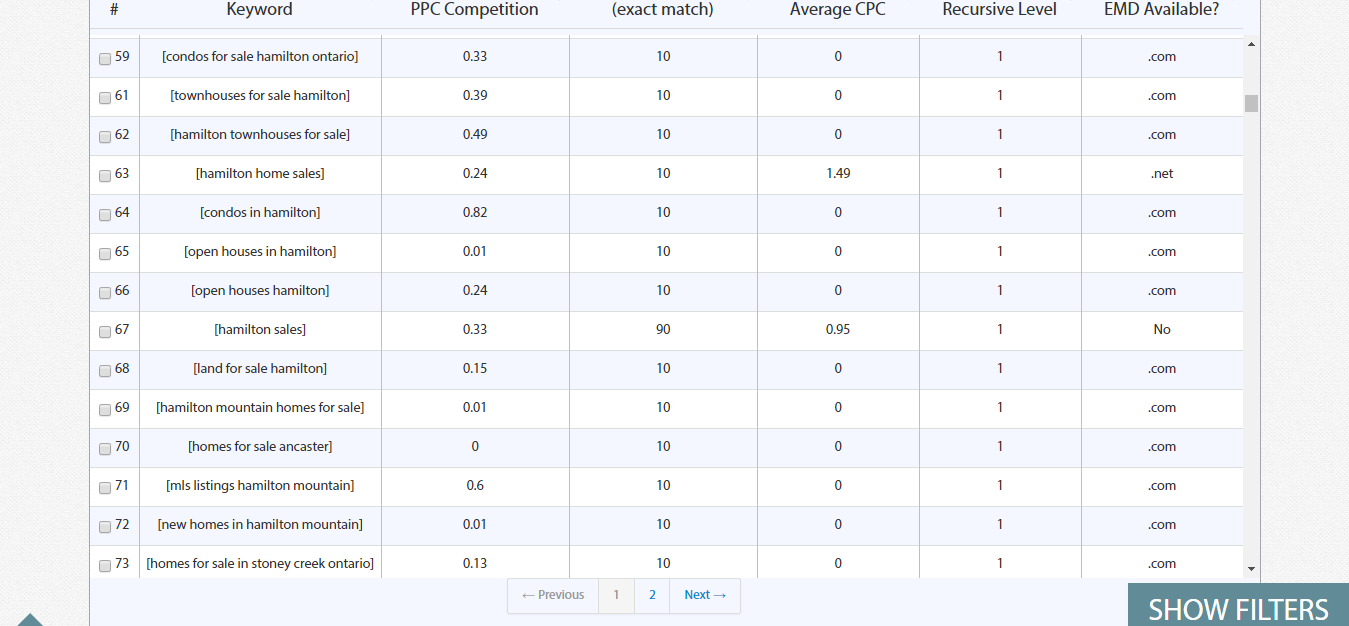
Term Explorer and WordStream are examples of free tools that are great for finding long-tail keywords. All you have to do is pump in a few geographical and real estate related keywords and it will churn out something like the above.
Usually, Google Chrome plugins such as Keywords Everywhere or another tool called SpyFu will show you what the competition is like to rank the keyword. As a rule of thumb though, most people won’t care to optimize for those tiny keywords with 10 searches monthly – but you should.
What happens when you’re optimized for 100 low competition, long-tail keywords that only have 10 searches per month? You get 1000 searches combined that you’ll rank for monthly.
Researching Hyper-Local Keyword Competition
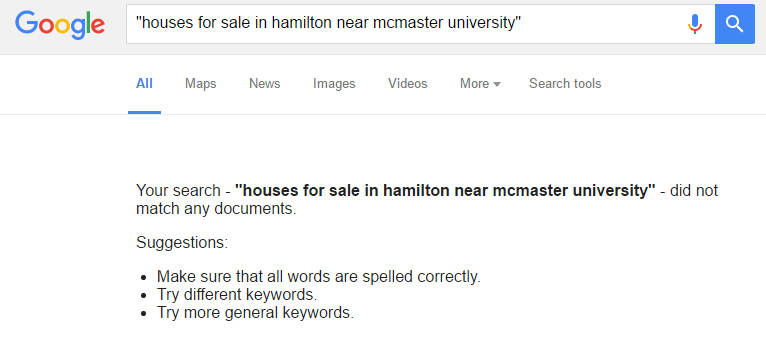
Of course there’s the risk of other realtors and brokerages in your area targeting these long-tail keywords. Here is one simple way to determine if you’re going to have direct competitors for ranking or if you will get to the top quickly:
Do an exact match keyword search. You do this by putting brackets around the keyword you’re targeting. For example: “Homes for sale in Stoney Creek Ontario”. If the search results look like the image above, you know that no one is targeting this exact search term.
Where To Target Hyper-Local Keywords
In this section, we’ll refer to content as any text on your pages and in your blog posts. The most important factors for ranking here are as follows:
- Proper subheading tags (the title of your page essentially)
- The first sentence of your page or article
- Keyword density (# of times KW appears vs # of words in page)
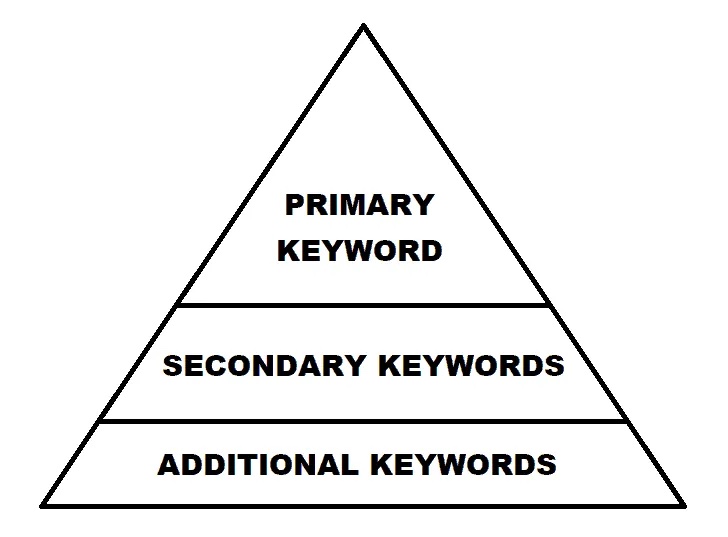
Primary Keywords:
These keywords are top priority, so you’ll want to make sure they are in the first sentences of your article, within your title, and your conclusion.
Secondary Keywords:
Secondary keywords compliment your primary keywords, 3-5 main talking points so using a handful of those secondary keywords makes sense.
Additional Keywords:
These keywords can be synonyms of primary and secondary keywords, or words that are often paired with higher level keywords.
Once you’ve got your keywords covered, you’ll want to sprinkle your keyword throughout your content and h3 tags. In this article, for example, we’re targeting “hyper-local SEO”. If you press control + F and search for “hyper-local SEO” you will notice we’ve used it several times.
Keywords in Your Meta Description and SEO Tag
As small as your meta description and SEO tag are, they are the visible elements of your webpage that pop up within search results. Search engines like Google, use your short SEO title and meta description to give readers a snippet of what your website is all about. Think of it like an elevator pitch in a digital text and make sure that it communicates the same clear, complete message and includes primary keywords.
Headings
Headings aren’t just about how your text looks, they are a powerful formatting tool that communicates signals to search engines. HTML tags used to identify H1, H2, etc. tell sites like Google which parts of your text are most important and what the main idea of your article is. Keywords used in headings bring emphasis to those words and are most likely to be indexed by search engines. On an aesthetic level, headings are needed to create a pleasant and fluid reading experience. No one wants to read huge chunks of text, and will often choose to close the page entirely.
Review Content for Optimization
Even after you’ve taken all the proactive steps to get your content ranked highly, there may still be some improvements to be made. A couple weeks after publishing your content, check up on your keyword ranking (Google Search Console is an easy and free way to do this). If your post is ranking better words besides your primary keywords, you may want to switch your primary in your SEO tool and make sure that you’re using it enough times.
Your URLs & Links
Drop your keywords in URLs and links. Bonus points if you use specific geographical or demographic keywords in them, like in the examples below.
“http://orlandorealtyservices.com/orlando-median-home-prices-continue-record-growth-in-april/”
Also, make sure to properly use anchor-text when possible.
When you link from your pages or articles to other places on your site (and when other people link to you), you’re going to be using hyperlinks. Text used as a clickable link is called anchor text.
In order to get the most hyper-local SEO benefit, make sure your links (and links from other blogs) are using keywords that are relevant to the places you’re linking out to (you’ll notice I do this a lot). That’s because a good linking structure on your website is important for user experience and SEO.
If your plan is to build links, writing for local newspapers and blogs is a great first step. Here’s the guide to guest contributing that I wrote for Inman as an example.
Backlinks
There are a ton of low-effort and impactful ways to build backlinks to your real estate website.
Any kind of local citation website is a good place to start. Sites like Yelp and other review sites will show you what businesses in the area have similar clientele. Networking within the local community (reaching out to contractors, other local businesses, etc) is a great way to secure backlinks on locally-relevant websites. These businesses are likely to be more receptive to backlinks if you agree to do the same for them (only in relevant content, of course). This requires a bit more manual outreach, but the pay off is well worth the effort.
The next strategy to build backlinks is to intentionally write content that’s extremely shareable and and push that content on your socials. Facebook and LinkedIn are two of the best platforms for this link-building technique. This content doesn’t necessarily need to be real estate specific, but it should be consistent with your personality and business style. It can be regarding local events, regional special points of interest, lifestyle tips, and more.
Your Images
Optimize your images with the following methods to help rank your real estate website content.
- File size
- Image name
- Alt tags and description
File Size
Nothing messes up the user experience and SEO like a big, heavy image that takes forever to load. The loading speed of your webpage determines how many people stick around your site (bounce rate nearly doubles with every second of load time). According to Google, any page that takes over 3 seconds to load causes roughly 53% of visitors to leave before the page is fully loaded. Even a one second delay can decrease conversion by 27%.
Our AgentFire designers make sure that every image we add to your website works within speed recommendations and allows the overall web experience to run smoothly.
Image sizes also tell Google how well they should rank your site. For a full guide to optimizing your image file size, click here.
Image Name and Alt Text
Alt text, also known as an alt attribute or alt tag, are captions that describe what is shown in an image.
The concept of alt text was first introduced as a solution for visually impaired web users. However, It’s also an essential tool that allows your pages and images to be indexed correctly by search engines to improve your overall SEO.
Search engine crawlers scan your web pages with the intent of measuring how well indexed the information is. Alt text is also important if your pages aren’t able to load properly, as images are one of the elements that are especially likely to load incorrectly. In place of images, alt text will appear and continue to be read and indexed by search engine crawlers. Without alt text, search engine crawlers and readers have no idea what your images are meant to represent.
With this knowledge, site owners desperate to get their site seen often make the mistake of stuffing their alt text with popular keywords in hope of stealing clicks. When their site ranking declines, they quickly learn that modern search engines are a lot smarter than they suspect. In most cases, search crawlers immediately judge when alt text is truly serving its purpose or just trying to catch unsuspecting users.
Your images should be named with long-tail keywords, just like in your rich content. As a rule of thumb, you should use 4-6 long-tail keywords in your article and pick a few of those keywords to add to your image name. This helps expand on your broad target keyword without confusing Google for having too many different keyword variations.
Let’s imagine your article is about real estate investing…
- Blog Title: Best Real Estate Investments in San Diego
- Keywords: “Positive cash flow investments San Diego” “making money San Diego real estate” “San Diego real estate investments”
- Image Names: Positive-cash-flow-investments-san-diego.jpg, san-diego-real-estate-investments.jpg etc.
When naming images, use hyphens to represent spaces between words. Quality image naming helps make your image more relevant on Google Images and thus rank better. Although it seems like a small detail, we wouldn’t suggest skipping this. Images help a lot with SEO and can also send you decent traffic from Google Images.
Good vs. Bad Alt Text

Bad Alt text includes:
- Flowery language
- Inaccurate descriptions (keyword stuffing)
- Unclear text
Example: Impressive Blue View Vacation Real Estate Market 2023
Good Alt text includes:
- Non-decorative text
- Short and clear text
- Does not include “picture of” or “image of”
Example: Family admires San Diego mountain view
There’s a lot to say about Alt Tags. Check out this article from Yoast if you want to understand them completely.
Site Architecture
This is where our genius AgentFire designers chime in. The ideal site structure for incredible SEO often requires coding knowledge or a specialist’s support.
All the most important parts of developing a real estate website that works in your favor effortlessly, e.g. removing all dead links from your website and checking if all the other links work properly. If possible, take care of your site’s architecture and make sure that it is logical.
The Importance of a Great Review
Social Proof
Choosing a real estate agent is a huge financial and time commitment. In fact, the more costly your service, the more important great reviews are. Positive reviews up your SEO in multiple key ways. A high number of positive reviews is a quick and easy way to gain social proof. It’s simple math; the more people feel like they can trust you, the more likely they are to give you a try or refer your services to someone they know.
Rich Snippets and Search Results
Search engines love positive reviews because they assist them in achieving their main aim: point people in the direction of what they need and the best version of it. Reviews often pop up under google searches and will be front and centre if prospects type in your business name. A search of your name + review, will bring users directly to your online reviews, so make an effort to elicit positive reviews from clients.
If an online review is well-formatted, Google may grab it and use it as a rich snippet. Rich snippets appear before other organic search results and automatically offer a ton of useful information about your service. According to BrainLabsDigital.com
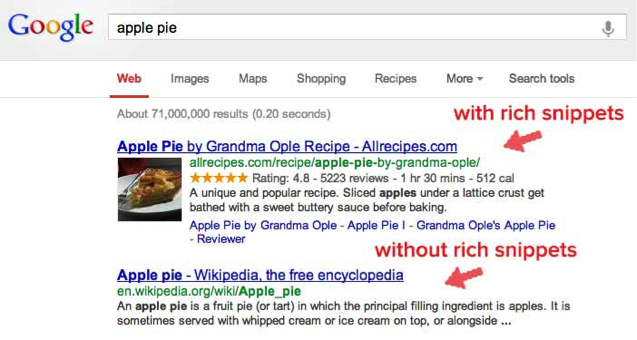
If a review is correctly formatted, the rich snippets will help to increase click-throughs from search engine results pages. According to Distilled, these rich snippets can create a 10-20% increase in click-through rate.
Increasing Long-tail Keywords
A great review is like a free piece of powerful, rich content. Chances are, your past clients are using the same long tail keywords to describe their experience that prospective clients will use in their search. These keywords are highly specific and are most likely to pop up in local, targeted searches.
Social Media and SEO
Here’s the tricky thing about social media and SEO: social media doesn’t directly improve your SEO. However, there are ways to improve your social media presence that will circle back and affect your SEO. Let’s look a bit deeper.
Optimize Social Media profiles
Google trusts websites that have a strong media presence and complete social media profiles. Networks such as Facebook can be considered a search engines of their own as it indexes user’s contact information. Remember the importance of your NAP? Google will skim your social media profiles as added proof that your NAP is correct and to verify your brand credibility. Make sure that your profile is a business account under a similar, if not identical name to your business. A lack of profile optimization can cost you money, as it prevents you or your brand from popping up on search engines throughout the web.
Additionally, your company social media profiles appear in searches for your business (often right under your website). Take up the majority of the first results page and leave no room for competitors by making sure your information is properly filled out on multiple profiles.
More Social Proof
There’s no place online where people feel as comfortable to share their opinions as on Social Media. Your social media profiles are powerful online areas where opinions are shared and considered by prospective clients. Social Media users overwhelmingly trust the trials and recommendations made by other users.
Increase Demand for Your Content
More traffic from any other online source, equals more chances to get noticed by Google. The virality of your posts on social media can lead to increased visits and backlinks over time.
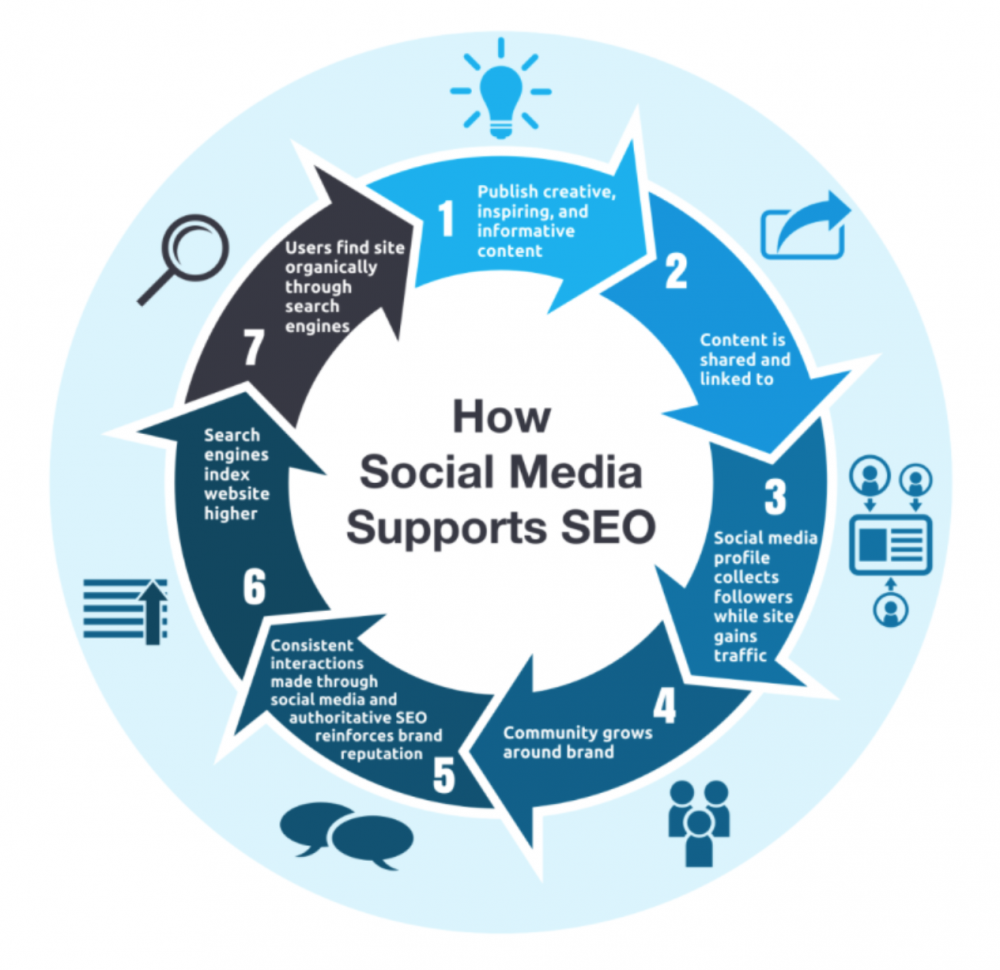
Have you noticed that very specific google searches often lead you to a Pinterest pin?
Pinterest drives more traffic to websites than all the other social networks and has an unusually long lifecycle online. Unlike other social media networks, Pinterest is designed to take users off of the Pinterest feed and into specific web pages.
Youtube
Unlike other social media networks, Google considers youtube videos qualified search results and even pushes them to the top of search result pages. Optimized video content that answers a specific client question, can lead watchers to your site for more information.
Due to the format and popularity of Facebook, Google bots other search engine crawlers regularly read content on its pages. When users perform searches, those pages on Facebook will appear on SERPs. Make sure to have local and relevant keywords inserted within your Facebook profile.
Additionally, Facebook reviews do pop up on google. Facebook reviews may not do much for ranking, but their presence can sway a person’s decision to click to your website or not.
Quora
Quora is one of the least thought of, yet most treasured social media websites for SEO. Like Google, Quara aims to do one thing: answer valuable questions on specific topics of interest.
Users answering questions on the site often direct others to their website using relevant links in the responses they provide.
Additionally, queries contain keywords that your target audience are searching for on Google.
SEO Tools for Realtors
Hike SEO
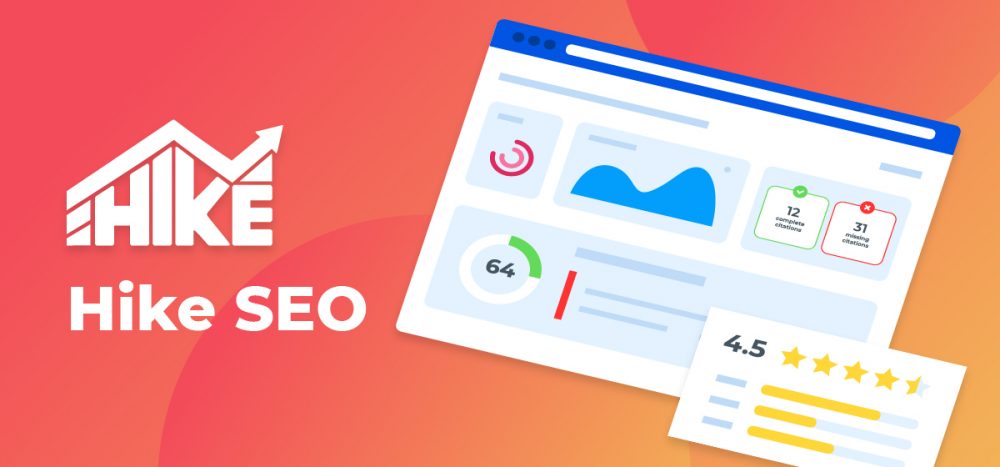
Hike SEO helps you build your perfect SEO strategy. It’s meant to make the whole process easier, quicker, and most efficient for a budget-friendly cost.
Keyword Suggestions
Hike SEO helps users find the keywords clients are looking for on Google. Search by services or competition to generate the top phrases in your industry. From there. Give each phrase a priority score to help you pick out the most achievable keywords to use in your next piece of content.
Local SEO
Hike SEO allows you to perfect local SEO without ever having to exit the Hike SEO platform. Any missing opportunity to optimize your Google My Business or Google Maps listing will be pointed out so that you can address them as soon as they come up. Once you’ve made the necessary changes, they’ll go live immediately.
Hike SEO even offers a detailed Google My Business optimizer that will help you do anything you need including building and scheduling review responses, adding posts, and more. Not sure how to perfect these fields? No worries, Hike SEO provides suggestions to improve review responses, posts and citations.
Reviews
A busy business and happy client list means you’ll likely garner a ton of reviews over time.
The Hike SEO platform allows users to organize and systematically reply to reviews much more easily than directly in Google. Spot and filter negative phrases your clients are using so that you can respond to them promptly and directly resolve any concerns. You can also search by sentiment, star rating, and keywords.
Yoast SEO (integrated)
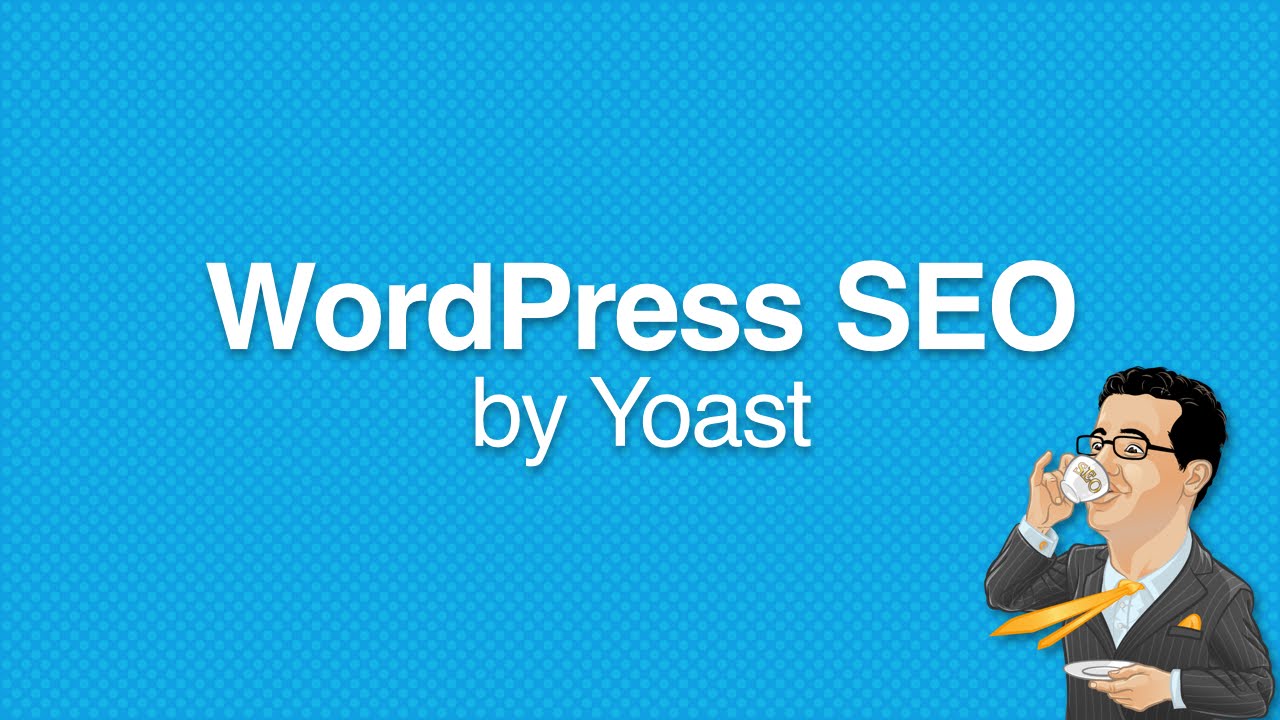
Any real estate website built on WordPress can use the Yoast SEO plug-in. This plug-in makes content optimization super easy. Anytime you write an article, they’ll give you an automated list of actionable tasks.
If you’re an AgentFire client, you’ll automatically enjoy our Yoast Premium and Yoast Video SEO integration. This Yoast integration allows our clients to easily redirect old URLs to new ones, check what your Facebook or Twitter post will look like before you share your post, optimize for different search terms and more.
Surfer SEO
Surfer SEO is an SEO copywriting machine. The service provides everything from content audits to detailed editors, outline generator, keywords guidance and more. Recently, Surfer SEO has upgraded nearly all of their features and made it easy to download the plugin on multiple platforms. Google Docs, WordPress, SemRush and Jasper all integrate with Surfer SEO so that you can use features such as keywords hints and formatting suggestions without leaving the platform.
Learn more about detailed SEO writing in Surfer SEO’s academy or interact with community groups to share SEO strategies. The Surfer SEO platform has even grown to include masterclasses and certificates to perfect your copywriting skills.
The Most Common Real Estate SEO Mistakes
- Stuffing Keywords
If you’re packing as many keywords as possible into every piece of content, you’re sinking your own SEO ship. Search engine crawlers are highly intelligent and can easily spot when you are over using keywords in an attempt to rope in visitors. And they won’t let it slide. As soon as a search engine realizes that visitors are clicking away into yoursite and not finding quality content relevant to their search query, your page ranking quickly sinks.
A good keyword ratio is around 1 – 2% of your word count. If you use the same keyword anymore than this, Google will start to discourage users to visit your site.
An even more detrimental keyword strategy is using high priority keywords in content that is not relevant. For example, if the latest news story is about falling gas prices, and you unnaturally include words such as “petrol”, “gasoline”, and “economics” in an article that is primarily about home decorating, you have a problem. Visitors who land on your page will click out of your site as soon as they realize they’ve been tricked. Providing unreliable, inaccurate content is the opposite of what search engines aim to do, so you can expect to be punished for it. Content with a high bounce rate is horrible for your ranking.
2. Not Keeping Up With SEO Updates
Search engines are constantly changing how they rank websites and source information. Your SEO knowledge has to stay up to date with these changes in order to do any good for your websites. AgentFire blogs are a great resource for all digital marketing tips, including SEO. We’d also suggest taking a look at the Surfer SEO blog and educational modules.
3. Duplicate Content
Don’t compete with yourself! Search engines are constantly scouring your website and making quick decisions about which pages to rank first. If you’re ranking for the same keywords on multiple pages, they’ll chase each other to the bottom of search results.
This doesn’t mean that you can discuss the same topic. Approach the same topics from multiple angles and assign each content page its own primary keywords.
4. Not Optimizing for Mobile
Over 50% of web traffic comes from mobile. If your website isn’t optimized to appear beautifully on a mobile screen, you’re automatically cutting your reach by half. AgentFire designers diligently test client websites to make sure that they appear accurately every time. On of the biggest concerns in regards to mobile is slow loading speeds. As we mentioned before, even a one or two second delay can cause visitors to skip away from your site.
5. Not Being Aware of Broken Links
Broken links indirectly affect your SEO by increasing your bounce rate and sends search engines the signal that your web page is in need of an update.
There are a number of extensions and plugins that will help you identify broken or sketchy links on your webpages. We use Check My Links to audit our pages and color code broken links based on if they are true, inaccurate, or broken.
External and internal broken links are equally negative for your website. External links are more likely to go under the radar because you can’t be sure when someone else is going to take down their page.
Internal broken links, on the other hand, are much easier to prevent because the content is created by you. At the least, you should have a uniform policy for naming link urls and regularly skimming your website for broken links after editing URLs.
In Conclusion…
Now you have all the essentials when it comes to optimizing your content for Google – it’s time you put it to action.
To make this super easy for you, we put together a straightforward manual that you can use to delegate and/or streamline your keyword research and content optimization. Get that for free below.
GET OUR SEO CHEATSHEET!
Drive more visitors to your site and generate more leads with this step-by-step guide to hyper-local SEO.
These are the exact strategies we use to rank our own content on Google!

